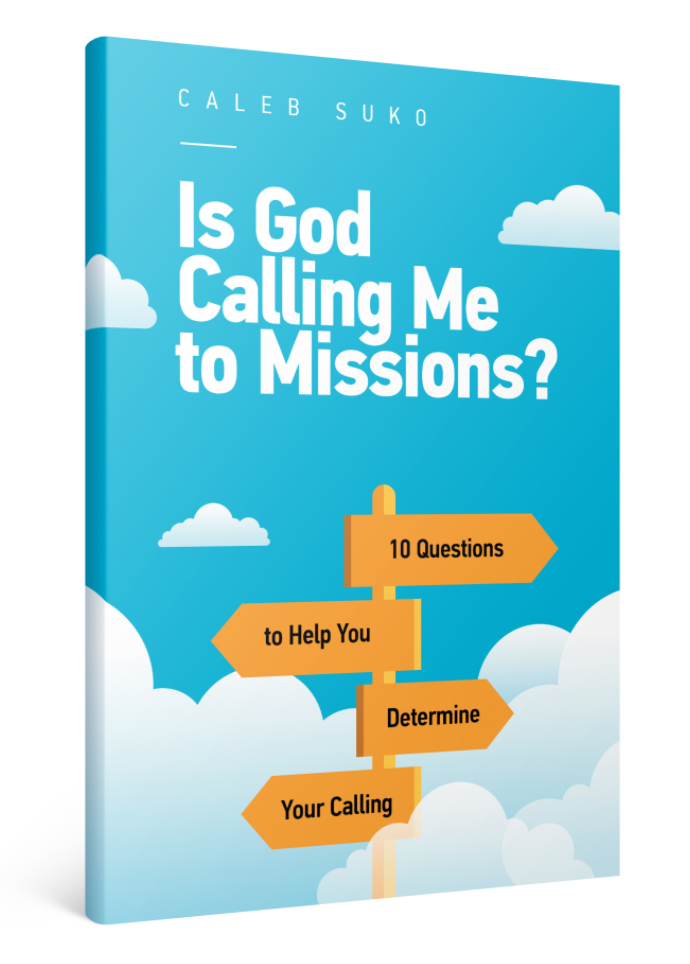The sound of metal smacking metal usually goes straight to my stomach and leaves me feeling like I just swallowed a handful of gravel! However, when I’m the driver and It’s my car slamming into a complete stranger’s car that gravely feeling tends to hangout in my bowels for quite a while longer.
In this episode of “Now Is the Time” I tell you about how I got into a car accident. I also talk about how Christians should respond to God in difficult times with hearts of worship and praise.
Podcast: Play in new window | Download (Duration: 28:02 — 25.7MB) | Embed
Subscribe: Google Podcasts | Email | RSS
Yesterday I had two things on my schedule in addition to my regular responsibilities. One was to attend our special Christmas lunch for seniors and give them a short Christmas greeting and the second was to meet with a young man for some discipleship time.
Because of the snow I was trying not to use our car if possible. However, I had parked our van in an unusual spot the night before and it was getting in the way of a few neighbors who asked me to move it. Of course, I quickly went and moved the van and thought, “Well since I’m already in the car I might as well use it.”
After my discipleship meeting I offered to give the young man a ride home since it was bitter cold and not so easy to walk in all the snow. “No big deal” I thought, he only lives about a mile or so from my place. I quickly dropped him off and was on my way home yesterday evening, already thinking about how nice it would be to come in from the cold and have a nice dinner with my family.
Well, maybe I was thinking about that too much. I headed down the unplowed road with my wheels following the deep grooves in the snow. The days haven’t gotten much longer so at 5:30 pm it was already dark. I was going about 20 miles in hour down a minor cross street when I suddenly realized there was a large snow drift that was taking up a good part of my side of the road. At the same time a car was headed in my direction and we were on a path to meet right where that snow drift narrowed the road.
I tried to brake and turn the wheel but the tracks in the snow kept me on a straight path toward the car that was approaching. I held my breath and hoped we would just miss each other, but we didn’t. My front left bumper struck his front left fender producing a sudden thud and crunch.
“Oh boy” I thought, “I guess I’m not going to make it home for dinner after all!”
I got out of the car to check the damage. My car, which was by far the bigger car, had surprisingly little damage. No dents, just a little scraped paint and the glass from my mirror had come unglued. Unfortunately the other guy wasn’t so lucky, I flubbed up his fender pretty nicely.
We waited around in the bitter cold for 15-20 mins before the police showed up, then another 90 minutes or so while they took their reports and made their measurements. Since it was unclear who was at fault, the police said they would call us later with instructions. I haven’t heard from them yet.
I got home later that evening feeling kind of stupid and down.
“Why couldn’t I have driven just little slower?”
“Why did I promise to take that young man home?”
“Why did I decide to take the car at all?”
Yes, I really wish it hadn’t happened, I wish I had done something different to avoid the unsavory aftertaste of gravel in my stomach. But there it is, that’s what happened and now I need to deal with it.
It’s in moments like these that I find it so easy to get down, to get down on myself, and then to allow that discouragement to keep me from pressing forward in ministry. I recorded a podcast sometime ago called “Discouragement and Depression in the Ministry -13 Ways to Overcome” It’s good advice that was easy to write when I wasn’t discouraged but a lot harder to implement when you’re looking from the other side of the fence.
How should we respond when things go bad?
So I found myself asking this question, “how should I respond as a Christian?” I talk a lot in my podcast about a life of worship. Worship seems easy and natural when you’re attending a church service or having a particularly precious time of personal prayer and Bible reading.
- But how do you worship when you’ve just rammed into someone else’s car?
- How do you worship when you’re standing in the cold explaining the details of an accident to the police?
- How do you worship when others are upset with you and have a few unappetizing words for your consideration?
To be fair, when I look at the bigger picture I know my situation is peaches and cream compared to others. For instance, I’ve been following a pastor friend Craig Houston on Facebook whose little son was found not breathing a week ago or so. They revived him but are still unsure whether his brain will heal from the trauma. These are some of the most difficult times to worship.
Yet, their family gathered around little Lemuel’s hospital bed and did something amazing, they worshipped by singing the doxology!
Now I didn’t break into singing the doxology after the car accident, that’s not the point. The real point here is that God wants us to worship in times like these despite the way we feel. In fact I believe God values this kind of worship far more than worship that takes place when everything around us it going great.
Job’s response to the pain he experienced is one of the best examples we have of worshiping God in our pain.
Then Job stood up, tore his robe, shaved his head, fell to the ground, bowed very low, and exclaimed: “I left my mother’s womb naked, and I will return to God naked. The LORD has given, and the LORD has taken. May the name of the LORD be blessed.” Job neither sinned nor charged God with wrongdoing in all of this.
Job 1:20-22
Why is it so hard to worship in the trials of life? Primarily because we don’t feel like it. Worshiping God who allowed you to have such pain seems illogical and it doesn’t promise to immediately remove your pain.
Yet, it is the right thing to do.
Often when I asked my kids to do some sort of choir around the house they tell me,
“But I don’t like to do that.”
They seem to have some sort of strange idea that a good parent would never ask them to do something that is not pleasurable or to their liking. As parents we know the truth is the opposite, a good parent is one who succeeds in teaching his child to take care of the vital tasks that need to be done regardless of how we feel about them.
My response to the children usually goes something like this, “Whether you want to do it or not does not change that this chore needs to be done!” In other words, doing the right thing does not always equal doing the pleasurable thing. The right response to pain is worship. You might not feel like it, you might still be in deep pain but that does not change what you need to do, you need to worship God!
Our natural way of thinking is to base our worship of God upon how much or how little he has blessed us with temporary things like, health, money, and success. If this is the basis for our worship then when these things are taken away from us we are left with no reason to worship God.
If we believe we are entitled to those temporary comforts and God has unfairly dealt with us then we may become like Job’s wife who saw Job’s worship of God after all the pain and loss as detestable. Her advice was “Curse God and die!” (Job 2:9)
How can we worship in these circumstances?
We tend to think of worship as an emotion. Some things make us feel happy, some things make us feel angry, and other things make us feel worshipful. Just as you can not completely control feelings of happiness or anger so you cannot always control your ability to worship. If you find yourself not in a worshipful mood there’s little you can do change the situation.
These ideas about worship are misleading and damaging to real worship!
Real worship is not produced by chemical processes in our brain, does not depend upon emotional swings, and is in no way related to sentimental factors. Real worship comes from our understanding of God’s truth revealed to us and from a proper faith response to that truth.
Image the faith that it took for Job to bow low and worship a God who had just let such terrible disasters happen to him? He was no longer worshiping based upon personal experience, he was not worshiping based upon a “worship feeling.” No, he was worshiping based purely on faith in a God who is who he says he is.
I saw another example of this recently. You may have heard about the Chekhovskiy family whose apartment was engulfed in flames just a over a month ago. Anna and her five children all perished in the fire. The lone survivor was Victor the husband and father. On Christmas day December 25th, just a few weeks after the tragedy Victor stood before his church and said:
“I have many questions for God, why did the Lord allow this? But I always felt that you supported me in your prayers and that the Lord would not allow me to doubt in his mercy and I want to testify that I have not doubted his mercies. Even in my tragedy God made no mistakes. I know one thing, if I am still alive then I should live my life for the Lord!” 1)You can watch the video in Russian of Victor’s testimony here.
Conclusion
When life get’s hard we must turn to truth in faith. We must decide that we will be worshipers of God not matter the physical, material, or emotional condition. We must find ourselves on the knees of our heart in search of the one who never changes, never makes a mistake, and never lets us down.
Question: What verses of Scripture do you find helpful when it’s hard to worship God?
Podcast: Play in new window | Download (Duration: 28:02 — 25.7MB) | Embed
Subscribe: Google Podcasts | Email | RSS
References
| 1. | ↑ | You can watch the video in Russian of Victor’s testimony here. |










Nancy Suko
January 15, 2017Great blog, Caleb. I particularly liked your point that if we don’t deal well with the smaller difficulties of life, then we won’t be able to handle the bigger ones. The link to Victor speaking and an additional video of the service at the cemetery were both good for putting life into perspective.